![Archbishop Coakley mourns execution of Oklahoma murderer, urges prayers for end to death penalty #Catholic Oklahoma City Archbishop Paul Coakley this week lamented the state’s execution of convicted murderer Kendrick Simpson, urging prayers for an end to what he called the “inhumane” punishment of the death penalty. Oklahoma executed Simpson on Feb. 12 for the 2006 murders of 20-year-old Glen Palmer and 19-year-old Anthony Jones. Simpson was convicted of killing the two in a shooting outside of an Oklahoma City nightclub.Simpson’s execution came after the state’s Pardon and Parole Board voted against his clemency petition. The U.S. Supreme Court similarly rejected his appeal. He was pronounced dead at 10:19 a.m. on Feb. 12. Coakley in a statement on X said the execution — coming shortly after the state’s March for Life — “brought into stark reality just how much work remains” for pro-life advocates in the state. Tweet“Heinous crimes should not go unpunished and our compassion and support for the victims and their loved ones is necessary,” the archbishop said, urging the faithful to “pray for those left behind [who are] often dealing with incomprehensible grief.”Yet “the intentional killing of the perpetrator cannot heal those terrible wounds,” Coakley said, arguing that the “pain and loss of one death cannot be extinguished by another violent death.”“The death penalty is inhumane and a poor method of punishment, standing in opposition to our duty to respect and value all human life and cherish God’s plan for humankind, which includes merciful justice and the opportunity for the redemption of the soul,” he said. Coakley has long been an outspoken opponent of the death penalty, having regularly called for its abolition while arguing that it “only contributes to the continued coarsening of society and to the spiral of violence.”Oklahoma, meanwhile, has for years been among the most execution-heavy states in the country; it is first among states in executions per capita and seconded only by Texas in total numbers of executions.Coakley himself is among the numerous U.S. prelates who regularly advocate against capital punishment in their respective states. The Death Penalty Information Center says that 23 states and the District of Columbia have abolished capital punishment.The archbishop on Feb. 12 urged the faithful to join him in “praying for an end to the death penalty in our state and nationwide.” He also urged prayers “for the victims, Glen Palmer and Anthony Jones, and their families, as well as Kendrick Simpson and his family.”Simpson himself had openly confessed to the murders ahead of his execution as part of his clemency plea before the state board.At the hearing he also addressed the families of his victims, telling them directly: “I apologize for murdering your sons.”“I don’t make any excuses, I don’t blame others, and they didn’t deserve what happened to them,” he said. Archbishop Coakley mourns execution of Oklahoma murderer, urges prayers for end to death penalty #Catholic Oklahoma City Archbishop Paul Coakley this week lamented the state’s execution of convicted murderer Kendrick Simpson, urging prayers for an end to what he called the “inhumane” punishment of the death penalty. Oklahoma executed Simpson on Feb. 12 for the 2006 murders of 20-year-old Glen Palmer and 19-year-old Anthony Jones. Simpson was convicted of killing the two in a shooting outside of an Oklahoma City nightclub.Simpson’s execution came after the state’s Pardon and Parole Board voted against his clemency petition. The U.S. Supreme Court similarly rejected his appeal. He was pronounced dead at 10:19 a.m. on Feb. 12. Coakley in a statement on X said the execution — coming shortly after the state’s March for Life — “brought into stark reality just how much work remains” for pro-life advocates in the state. Tweet“Heinous crimes should not go unpunished and our compassion and support for the victims and their loved ones is necessary,” the archbishop said, urging the faithful to “pray for those left behind [who are] often dealing with incomprehensible grief.”Yet “the intentional killing of the perpetrator cannot heal those terrible wounds,” Coakley said, arguing that the “pain and loss of one death cannot be extinguished by another violent death.”“The death penalty is inhumane and a poor method of punishment, standing in opposition to our duty to respect and value all human life and cherish God’s plan for humankind, which includes merciful justice and the opportunity for the redemption of the soul,” he said. Coakley has long been an outspoken opponent of the death penalty, having regularly called for its abolition while arguing that it “only contributes to the continued coarsening of society and to the spiral of violence.”Oklahoma, meanwhile, has for years been among the most execution-heavy states in the country; it is first among states in executions per capita and seconded only by Texas in total numbers of executions.Coakley himself is among the numerous U.S. prelates who regularly advocate against capital punishment in their respective states. The Death Penalty Information Center says that 23 states and the District of Columbia have abolished capital punishment.The archbishop on Feb. 12 urged the faithful to join him in “praying for an end to the death penalty in our state and nationwide.” He also urged prayers “for the victims, Glen Palmer and Anthony Jones, and their families, as well as Kendrick Simpson and his family.”Simpson himself had openly confessed to the murders ahead of his execution as part of his clemency plea before the state board.At the hearing he also addressed the families of his victims, telling them directly: “I apologize for murdering your sons.”“I don’t make any excuses, I don’t blame others, and they didn’t deserve what happened to them,” he said.](https://unitedyam.com/wp-content/uploads/2026/02/archbishop-coakley-mourns-execution-of-oklahoma-murderer-urges-prayers-for-end-to-death-penalty-catholic-oklahoma-city-archbishop-paul-coakley-this-week-lamented-the-states-execution-of-con.jpg)
The archbishop called for prayers for both the family of the killer’s victims and the killer himself.
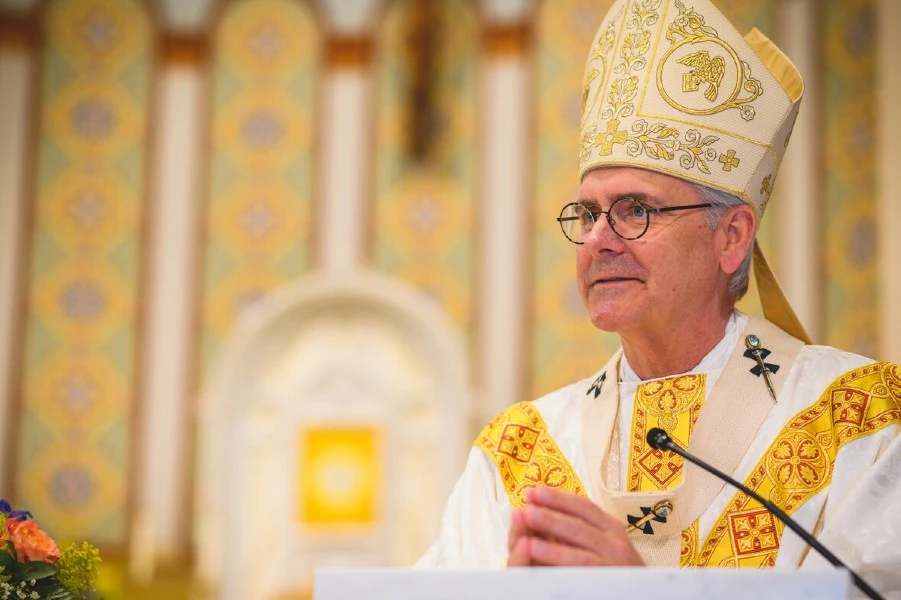
![Archbishop Coakley mourns execution of Oklahoma murderer, urges prayers for end to death penalty #Catholic Oklahoma City Archbishop Paul Coakley this week lamented the state’s execution of convicted murderer Kendrick Simpson, urging prayers for an end to what he called the “inhumane” punishment of the death penalty. Oklahoma executed Simpson on Feb. 12 for the 2006 murders of 20-year-old Glen Palmer and 19-year-old Anthony Jones. Simpson was convicted of killing the two in a shooting outside of an Oklahoma City nightclub.Simpson’s execution came after the state’s Pardon and Parole Board voted against his clemency petition. The U.S. Supreme Court similarly rejected his appeal. He was pronounced dead at 10:19 a.m. on Feb. 12. Coakley in a statement on X said the execution — coming shortly after the state’s March for Life — “brought into stark reality just how much work remains” for pro-life advocates in the state. Tweet“Heinous crimes should not go unpunished and our compassion and support for the victims and their loved ones is necessary,” the archbishop said, urging the faithful to “pray for those left behind [who are] often dealing with incomprehensible grief.”Yet “the intentional killing of the perpetrator cannot heal those terrible wounds,” Coakley said, arguing that the “pain and loss of one death cannot be extinguished by another violent death.”“The death penalty is inhumane and a poor method of punishment, standing in opposition to our duty to respect and value all human life and cherish God’s plan for humankind, which includes merciful justice and the opportunity for the redemption of the soul,” he said. Coakley has long been an outspoken opponent of the death penalty, having regularly called for its abolition while arguing that it “only contributes to the continued coarsening of society and to the spiral of violence.”Oklahoma, meanwhile, has for years been among the most execution-heavy states in the country; it is first among states in executions per capita and seconded only by Texas in total numbers of executions.Coakley himself is among the numerous U.S. prelates who regularly advocate against capital punishment in their respective states. The Death Penalty Information Center says that 23 states and the District of Columbia have abolished capital punishment.The archbishop on Feb. 12 urged the faithful to join him in “praying for an end to the death penalty in our state and nationwide.” He also urged prayers “for the victims, Glen Palmer and Anthony Jones, and their families, as well as Kendrick Simpson and his family.”Simpson himself had openly confessed to the murders ahead of his execution as part of his clemency plea before the state board.At the hearing he also addressed the families of his victims, telling them directly: “I apologize for murdering your sons.”“I don’t make any excuses, I don’t blame others, and they didn’t deserve what happened to them,” he said. Archbishop Coakley mourns execution of Oklahoma murderer, urges prayers for end to death penalty #Catholic Oklahoma City Archbishop Paul Coakley this week lamented the state’s execution of convicted murderer Kendrick Simpson, urging prayers for an end to what he called the “inhumane” punishment of the death penalty. Oklahoma executed Simpson on Feb. 12 for the 2006 murders of 20-year-old Glen Palmer and 19-year-old Anthony Jones. Simpson was convicted of killing the two in a shooting outside of an Oklahoma City nightclub.Simpson’s execution came after the state’s Pardon and Parole Board voted against his clemency petition. The U.S. Supreme Court similarly rejected his appeal. He was pronounced dead at 10:19 a.m. on Feb. 12. Coakley in a statement on X said the execution — coming shortly after the state’s March for Life — “brought into stark reality just how much work remains” for pro-life advocates in the state. Tweet“Heinous crimes should not go unpunished and our compassion and support for the victims and their loved ones is necessary,” the archbishop said, urging the faithful to “pray for those left behind [who are] often dealing with incomprehensible grief.”Yet “the intentional killing of the perpetrator cannot heal those terrible wounds,” Coakley said, arguing that the “pain and loss of one death cannot be extinguished by another violent death.”“The death penalty is inhumane and a poor method of punishment, standing in opposition to our duty to respect and value all human life and cherish God’s plan for humankind, which includes merciful justice and the opportunity for the redemption of the soul,” he said. Coakley has long been an outspoken opponent of the death penalty, having regularly called for its abolition while arguing that it “only contributes to the continued coarsening of society and to the spiral of violence.”Oklahoma, meanwhile, has for years been among the most execution-heavy states in the country; it is first among states in executions per capita and seconded only by Texas in total numbers of executions.Coakley himself is among the numerous U.S. prelates who regularly advocate against capital punishment in their respective states. The Death Penalty Information Center says that 23 states and the District of Columbia have abolished capital punishment.The archbishop on Feb. 12 urged the faithful to join him in “praying for an end to the death penalty in our state and nationwide.” He also urged prayers “for the victims, Glen Palmer and Anthony Jones, and their families, as well as Kendrick Simpson and his family.”Simpson himself had openly confessed to the murders ahead of his execution as part of his clemency plea before the state board.At the hearing he also addressed the families of his victims, telling them directly: “I apologize for murdering your sons.”“I don’t make any excuses, I don’t blame others, and they didn’t deserve what happened to them,” he said.](https://unitedyam.com/wp-content/uploads/2026/02/archbishop-coakley-mourns-execution-of-oklahoma-murderer-urges-prayers-for-end-to-death-penalty-catholic-oklahoma-city-archbishop-paul-coakley-this-week-lamented-the-states-execution-of-con.jpg)
The archbishop called for prayers for both the family of the killer’s victims and the killer himself.

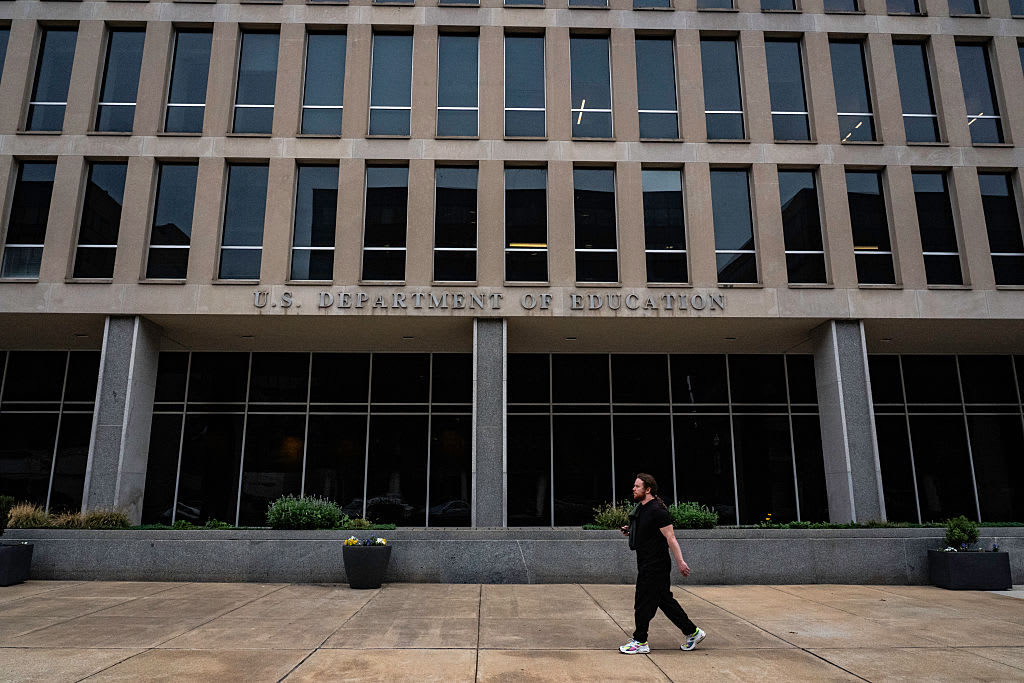
Public schools in the United States are required by the U.S. Constitution to allow students and staff to pray, the government said this week.
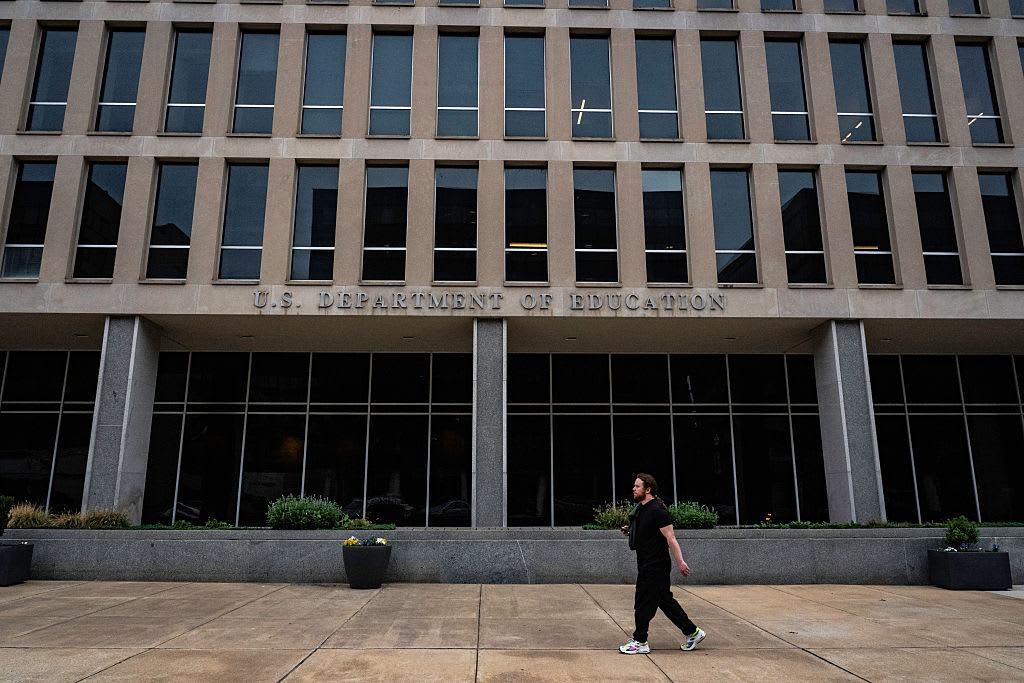
![New York Archdiocese says longtime insurer waged ‘shadow campaign,’ posed as victims’ rights group #Catholic The Archdiocese of New York is arguing in state court that its longtime insurer has secretly been “waging a shadow campaign” and posing as a victims’ rights group in order to “undermine and weaken” the archdiocese amid an ongoing insurance dispute. In a Jan. 31 legal filing at the New York State Supreme Court obtained by EWTN News, the archdiocese said that Chubb Insurance — which the archdiocese sued in 2024 over an alleged failure to pay out financial claims for sex abuse victims — has for several years been “secretly” posing as the “Church Accountability Project,” allegedly encouraging abuse victims to “pursue claims against the [archdiocese].”The archdiocesan filing said the insurer has secretly run the website in order to “elevate Chubb’s own financial interests” and improve its leverage in the ongoing lawsuit. As of Feb. 4 the “Church Accountability Project” website prominently displays the Chubb logo at the top of its page. But archives of the website from around a year ago make no mention of the site’s alleged alignment with Chubb.“The Archdiocese of New York tolerated and covered up horrific sexual abuse against children for decades,” the older, un-branded version of the website states. The project said it was “committed to holding the Archdiocese of New York accountable.” The current version of the website contains partly similar language.A Chubb spokesman on Feb. 4 described the filing as “the latest desperate tactic to delay justice and distract from the decades of horrific child sexual abuse the Archdiocese of New York enabled and concealed.”“It’s quite telling that the archdiocese is more outraged about the facts coming to light on a platform we created than they are about the abuses they condoned, concealed, and covered up,” the statement said. “The archdiocese is delaying payment to deserving victims and failing to provide insurers needed information.”In 2024 amid the newly filed lawsuit against the insurer, New York archbishop Cardinal Timothy Dolan told the faithful that Chubb was “attempting to evade their legal and moral contractual obligation to settle covered claims which would bring peace and healing to victim-survivors.”The insurer in turn argued that the archdiocese “tolerated, concealed, and covered up rampant child sexual abuse for decades, and despite having substantial financial resources, they still refuse to compensate their victims.”In its Jan. 31 filing the archdiocese requested punitive damages against Chubb. It described the alleged “Church Accountability Project” maneuver as “wanton sabotage” and “just the latest in an example of the depths to which Chubb is willing to stoop.” The rebranded “accountability” website, meanwhile, alleges that the archdiocese “repeatedly refused to share crucial details regarding what they knew and when” regarding child abuse. “The insurance purchased by the archdiocese is designed to cover accidents, not to compensate for deliberately concealing a pattern of abuse,” the website says. New York Archdiocese says longtime insurer waged ‘shadow campaign,’ posed as victims’ rights group #Catholic The Archdiocese of New York is arguing in state court that its longtime insurer has secretly been “waging a shadow campaign” and posing as a victims’ rights group in order to “undermine and weaken” the archdiocese amid an ongoing insurance dispute. In a Jan. 31 legal filing at the New York State Supreme Court obtained by EWTN News, the archdiocese said that Chubb Insurance — which the archdiocese sued in 2024 over an alleged failure to pay out financial claims for sex abuse victims — has for several years been “secretly” posing as the “Church Accountability Project,” allegedly encouraging abuse victims to “pursue claims against the [archdiocese].”The archdiocesan filing said the insurer has secretly run the website in order to “elevate Chubb’s own financial interests” and improve its leverage in the ongoing lawsuit. As of Feb. 4 the “Church Accountability Project” website prominently displays the Chubb logo at the top of its page. But archives of the website from around a year ago make no mention of the site’s alleged alignment with Chubb.“The Archdiocese of New York tolerated and covered up horrific sexual abuse against children for decades,” the older, un-branded version of the website states. The project said it was “committed to holding the Archdiocese of New York accountable.” The current version of the website contains partly similar language.A Chubb spokesman on Feb. 4 described the filing as “the latest desperate tactic to delay justice and distract from the decades of horrific child sexual abuse the Archdiocese of New York enabled and concealed.”“It’s quite telling that the archdiocese is more outraged about the facts coming to light on a platform we created than they are about the abuses they condoned, concealed, and covered up,” the statement said. “The archdiocese is delaying payment to deserving victims and failing to provide insurers needed information.”In 2024 amid the newly filed lawsuit against the insurer, New York archbishop Cardinal Timothy Dolan told the faithful that Chubb was “attempting to evade their legal and moral contractual obligation to settle covered claims which would bring peace and healing to victim-survivors.”The insurer in turn argued that the archdiocese “tolerated, concealed, and covered up rampant child sexual abuse for decades, and despite having substantial financial resources, they still refuse to compensate their victims.”In its Jan. 31 filing the archdiocese requested punitive damages against Chubb. It described the alleged “Church Accountability Project” maneuver as “wanton sabotage” and “just the latest in an example of the depths to which Chubb is willing to stoop.” The rebranded “accountability” website, meanwhile, alleges that the archdiocese “repeatedly refused to share crucial details regarding what they knew and when” regarding child abuse. “The insurance purchased by the archdiocese is designed to cover accidents, not to compensate for deliberately concealing a pattern of abuse,” the website says.](https://unitedyam.com/wp-content/uploads/2026/02/new-york-archdiocese-says-longtime-insurer-waged-shadow-campaign-posed-as-victims-rights-group-catholic-the-archdiocese-of-new-york-is-arguing-in-state-court-that-its-long.jpg)
The archdiocese alleged that Chubb Insurance posed as the “Church Accountability Project.”
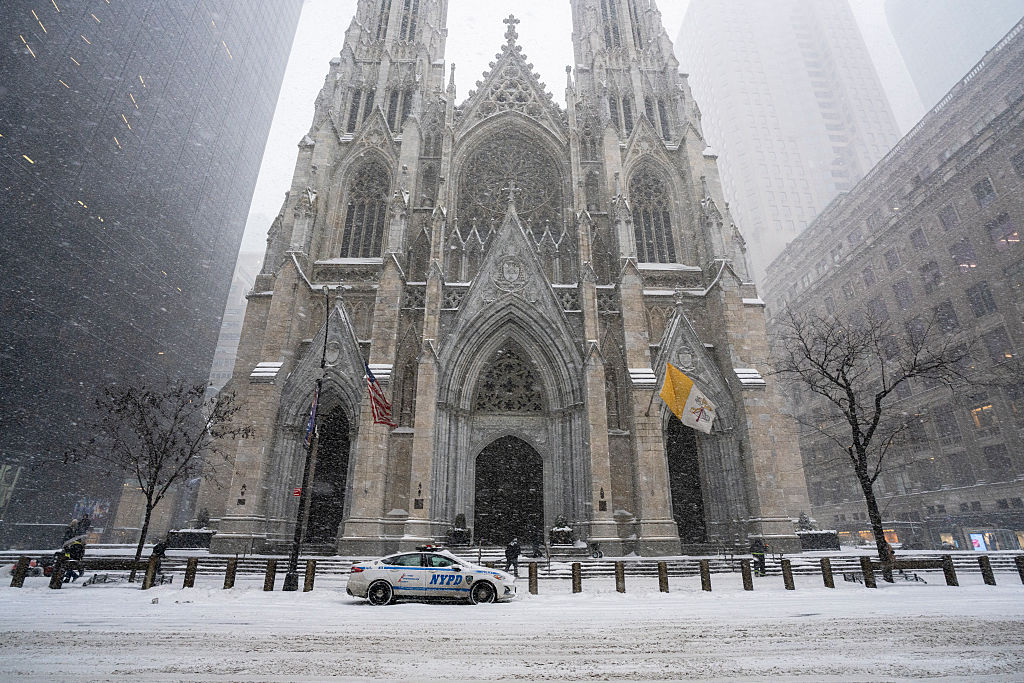
![Pro-life movement has mixed reaction after Trump’s first year of second term #Catholic
Participants in a pro-life rally hold signs in front of the Lincoln Memorial in Washington, D.C., on June 24, 2023, at a rally marking the first anniversary of the Supreme Court's Dobbs decision that overturned Roe v. Wade. | Credit: Joseph Portolano/EWTN News
Jan 20, 2026 / 14:37 pm (CNA).
Members of the pro-life movement have mixed thoughts on the first year of President Donald Trump’s second term, noting many wins early into his presidency but a number of shortfalls as time has gone by.Some wins include defunding Planned Parenthood, walking back some of President Joe Biden’s initiatives, and removing foreign aid funding for organizations that promote abortion. However, a lack of action on chemical abortions and weakened rhetoric surrounding taxpayer-funded abortions are causing concern.A notable pro-life win was included in the tax overhaul bill signed by Trump in July, which cut off all Medicaid reimbursements for organizations that provide a large number of abortions, such as Planned Parenthood.Amid funding cuts, nearly 70 Planned Parenthood affiliates shut down. The administration also initially cut off Title X family planning grants from the abortion giant, but those have resumed.The president pardoned pro-life protesters convicted of violating the Freedom of Access to Clinic Entrances (FACE) Act and blocked foreign aid from supporting organizations that promote abortion. He rescinded several policies from the Biden administration, including one that paid Pentagon workers to travel for abortions. He also established strong conscience protections for pro-life doctors.“Right out the gate, we saw some progress on the pro-life issue,” Kelsey Pritchard, a spokesperson for Susan B. Anthony Pro-Life America (SBA), told EWTN.Yet, she cautioned: “We have also not seen progress in the one area that matters the most — and that’s on abortion drugs.”Health Secretary Robert F. Kennedy Jr. launched a study into the safety of the abortion pill mifepristone in September 2025, but so far no action has been taken to curtail the drug. Rather, the Food and Drug Administration (FDA) went in the opposite direction, approving a generic version of mifepristone later that same month.Pritchard said that move was “the opposite of what they should have done,” and referred to the generic mifepristone as “a new kill pill to increase the number of abortions that are done in this country.”She said Kennedy’s promised study has “absolutely been moving too slow” and added that there is no confirmation it even began or is taking place. SBA called for FDA Commissioner Marty Makary to be fired following allegations he was “slow-walking the report for political reasons,” she said.Trump has said abortion should be regulated by the states, but Pritchard warned “those [pro-life] laws can’t be in effect at all, really, when mail-order abortion happens with the abortion drugs.”“They’re allowing [California Gov.] Gavin Newsom and [New York Gov.] Kathy Hochul and their blue state friends to completely nullify the pro-life laws in states like Texas and Florida,” she said.Joseph Meaney, a senior ethicist at the National Catholic Bioethics Center, similarly said “the delay in the promised review of the rushed process in which mifepristone was approved as an abortion drug by the FDA has frustrated pro-lifers.”“When the FDA approved a second generic version of mifepristone, … it highlighted the lack of progress in fighting the leading means of doing abortions in the [United States],” he said.Trump also began to waver on taxpayer-funded abortions early in 2026, asking Republicans to be “flexible” on the Hyde Amendment amid negotiations on extending health care subsidies for the Affordable Care Act. Trump later unveiled “The Great Healthcare Plan” and said the White House intends to negotiate with Congress to ensure pro-life protections.Pritchard called taxpayer-funded abortion “a very basic red line” and said it’s “concerning to see Republicans back away from something so basic.”She warned Republicans to not take pro-life voters for granted in the upcoming midterms, saying “you’ll lose the elections and we won’t have the majority of Congress” without pro-life voters.“You must remain the pro-life party or you will lose the midterms if you decide to bow to the pro-death Democrat agenda,” Pritchard said.Meaney said there is “a widespread feeling that the second Trump administration has seemed to deprioritize issues important to the pro-life community,” adding he has “seen calls for pro-life groups to ‘flex their muscles’ and show that they cannot be taken for granted.”However, he said the shortfalls “should not obscure the fact that the Trump administration has rolled back the Biden-era pro-abortion measures internationally and domestically.”“It even achieved a temporary defunding of Planned Parenthood domestically in legislation,” he said. “The federal government no longer funds research on fetal tissues and defends the conscience rights of health care professionals and others robustly.”Trump also signed an executive order that directed departments and agencies to boost access to and reduce the cost of in vitro fertilization (IVF). The Catholic Church opposes IVF, which results in the destruction of human embryos, ending human lives.](https://unitedyam.com/wp-content/uploads/2026/01/pro-life-movement-has-mixed-reaction-after-trumps-first-year-of-second-term-catholic-participants-in-a-pro-life-rally-hold-signs-in-front-of-the-lincoln-memorial-in-washington-d-c-on-scaled.jpg)

Jan 20, 2026 / 14:37 pm (CNA).
Members of the pro-life movement have mixed thoughts on the first year of President Donald Trump’s second term, noting many wins early into his presidency but a number of shortfalls as time has gone by.
Some wins include defunding Planned Parenthood, walking back some of President Joe Biden’s initiatives, and removing foreign aid funding for organizations that promote abortion. However, a lack of action on chemical abortions and weakened rhetoric surrounding taxpayer-funded abortions are causing concern.
A notable pro-life win was included in the tax overhaul bill signed by Trump in July, which cut off all Medicaid reimbursements for organizations that provide a large number of abortions, such as Planned Parenthood.
Amid funding cuts, nearly 70 Planned Parenthood affiliates shut down. The administration also initially cut off Title X family planning grants from the abortion giant, but those have resumed.
The president pardoned pro-life protesters convicted of violating the Freedom of Access to Clinic Entrances (FACE) Act and blocked foreign aid from supporting organizations that promote abortion. He rescinded several policies from the Biden administration, including one that paid Pentagon workers to travel for abortions. He also established strong conscience protections for pro-life doctors.
“Right out the gate, we saw some progress on the pro-life issue,” Kelsey Pritchard, a spokesperson for Susan B. Anthony Pro-Life America (SBA), told EWTN.
Yet, she cautioned: “We have also not seen progress in the one area that matters the most — and that’s on abortion drugs.”
Health Secretary Robert F. Kennedy Jr. launched a study into the safety of the abortion pill mifepristone in September 2025, but so far no action has been taken to curtail the drug. Rather, the Food and Drug Administration (FDA) went in the opposite direction, approving a generic version of mifepristone later that same month.
Pritchard said that move was “the opposite of what they should have done,” and referred to the generic mifepristone as “a new kill pill to increase the number of abortions that are done in this country.”
She said Kennedy’s promised study has “absolutely been moving too slow” and added that there is no confirmation it even began or is taking place. SBA called for FDA Commissioner Marty Makary to be fired following allegations he was “slow-walking the report for political reasons,” she said.
Trump has said abortion should be regulated by the states, but Pritchard warned “those [pro-life] laws can’t be in effect at all, really, when mail-order abortion happens with the abortion drugs.”
“They’re allowing [California Gov.] Gavin Newsom and [New York Gov.] Kathy Hochul and their blue state friends to completely nullify the pro-life laws in states like Texas and Florida,” she said.
Joseph Meaney, a senior ethicist at the National Catholic Bioethics Center, similarly said “the delay in the promised review of the rushed process in which mifepristone was approved as an abortion drug by the FDA has frustrated pro-lifers.”
“When the FDA approved a second generic version of mifepristone, … it highlighted the lack of progress in fighting the leading means of doing abortions in the [United States],” he said.
Trump also began to waver on taxpayer-funded abortions early in 2026, asking Republicans to be “flexible” on the Hyde Amendment amid negotiations on extending health care subsidies for the Affordable Care Act. Trump later unveiled “The Great Healthcare Plan” and said the White House intends to negotiate with Congress to ensure pro-life protections.
Pritchard called taxpayer-funded abortion “a very basic red line” and said it’s “concerning to see Republicans back away from something so basic.”
She warned Republicans to not take pro-life voters for granted in the upcoming midterms, saying “you’ll lose the elections and we won’t have the majority of Congress” without pro-life voters.
“You must remain the pro-life party or you will lose the midterms if you decide to bow to the pro-death Democrat agenda,” Pritchard said.
Meaney said there is “a widespread feeling that the second Trump administration has seemed to deprioritize issues important to the pro-life community,” adding he has “seen calls for pro-life groups to ‘flex their muscles’ and show that they cannot be taken for granted.”
However, he said the shortfalls “should not obscure the fact that the Trump administration has rolled back the Biden-era pro-abortion measures internationally and domestically.”
“It even achieved a temporary defunding of Planned Parenthood domestically in legislation,” he said. “The federal government no longer funds research on fetal tissues and defends the conscience rights of health care professionals and others robustly.”
Trump also signed an executive order that directed departments and agencies to boost access to and reduce the cost of in vitro fertilization (IVF). The Catholic Church opposes IVF, which results in the destruction of human embryos, ending human lives.
Read More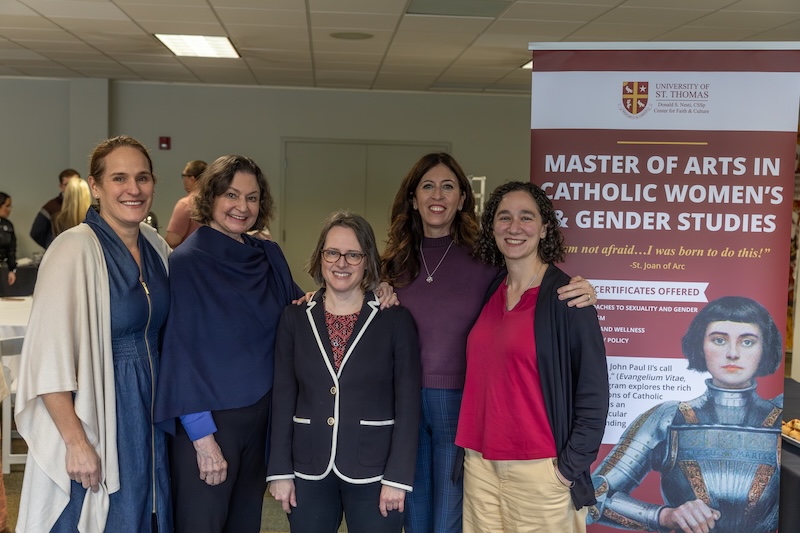

Jan 18, 2026 / 10:26 am (CNA).
This past week, nearly a quarter of U.S. states sued the federal government for defining biological sex as binary, the U.S. Supreme Court heard arguments for and against legally allowing males to compete against females in sports, and a Vatican official called surrogacy a “new form of colonialism” that commodifies women and their children.
These are just the latest legal and cultural effects of a “mass cultural confusion” surrounding the meaning and purpose of the human body, and particularly women’s bodies, according to Leah Jacobson, program coordinator of the Catholic Women’s and Gender Studies Program at the University of St. Thomas in Houston.
On Jan. 9–10, the program sponsored a symposium titled “The Beauty of Truth: Navigating Society Today as a Catholic Woman,” which brought together a group of Catholic women who have used their gifts of intellect and faith to serve as what Jacobson calls an “antidote” to the “chaos and confusion” of the cultural moment.
The speakers presented on a wide range of topics concerned with the beauty, truth, and necessity of the Church’s teachings on human sexuality, while also acknowledging how difficult living according to those teachings can sometimes be.
In one of the first talks, writer Mary Eberstadt argued that the question “Who am I?” became harder to answer due to the widespread use of the birth control pill, which has led to huge increases in abortion, divorce, fatherlessness, single parenthood, and childlessness.
“Each of these acts is an act of human subtraction,” Eberstadt said. “I’m not trying to make a point about morality, but arithmetic.”
“The number of people we can call our own” became smaller, she said.
While she acknowledged that not everyone has been affected equally, “members of our species share a collective environment. Just as toxic waste affects everyone," she said, the reduction in the number of human connections “amounts to a massive disturbance to the human ecosystem,” leading to a crisis of human identity.
This reduction in the number of people in an individual's life, she argued, resulted in widespread confusion over gender identity and the meaning and purpose of the body.
Eberstadt also attributed the decline in religiosity to the smaller number of human connections modern people have.
“The sexual revolution subtracted the number of role models,” she said. “Many children have no siblings, no cousins, no aunts or uncles, no father; yet that is how humans conduct social learning.”
“Without children, adults are less likely to go to church,” she said. “Without birth, we lose knowledge of the transcendent. Without an earthly father, it is hard to grasp the paradigm of a heavenly father.”
“Living without God is not liberating people,” she continued. “It’s tearing some individuals apart, making people miserable and lonely.”
When the sexual revolution made sex "recreational and not procreative, what it produced above all is a love deficit,” Eberstadt said.
At the same time, secularization produced “troubled, disconnected souls drifting through society without gravity, shattering the ability to answer ‘Who am I?’”
“The Church is the answer to the love deficit because Church teachings about who we are and what we’re here for are true,” she said.
She concluded with a final note on hope, saying “it is easy to feel embattled, but we must never lose sight of the faces of the sexual revolution’s victims,” she said, “who are sending up primal screams for a world more ordered than many of today’s people now know; more ordered to mercy, to community and redemption.”
Erika Bachiochi, a legal scholar and fellow at the Ethics and Public Policy Center who has taught a class for the graduate program, shared her experience as a mother of seven who tried to live according to the Church’s “difficult” teachings.
As her children began to arrive at “a breakneck pace” and each pregnancy was “a bit of a crucible,” Bachiochi said being a mother was “very hard” for her, partly due to wounds from her youth (among other troubles, her own mother had been married and divorced three times), and partly because of a lack of community.
Echoing Eberstadt’s “arithmetic” problem, Bachiochi described having very few examples of Catholic family life and a very small support system.
Bachiochi said she believes God heals us from our wounds through our “particular vocations,” however.
Of motherhood, she said: “I think God really healed me through being faithful to teachings that I found quite hard, but truly beautiful. I was intellectually convinced by them and found them spiritually beautiful, but found them to be very, very hard to live.”
“Motherhood has served to heal me profoundly," she said, encouraging young mothers to have faith that though it might be difficult now, there is an “amazing future” awaiting them.
“It’s really an incredible gift that Church has given me … the gift of obedience,” she said.
She also said by God’s grace, she was given an “excellent husband” and has found that “just as the Church promises, that leaning into motherhood, into the little things, the daily needs, the constant requests for my attention, has truly been a school of virtue.”
The Catholic Women’s and Gender Studies Program is a new part of the Nesti Center for Faith and Culture at the University of St. Thomas, a recognized Catholic cultural center of the Vatican’s Dicastery for Culture and Education.
Read More

Jan 6, 2026 / 14:00 pm (CNA).
The United States bishops have invited Catholics to pray an annual Respect Life novena for the protection of the unborn.
The Committee on Pro-Life Activities of the U.S. Conference of Catholic Bishops (USCCB) is sponsoring the “9 Days for Life” prayer that will begin on Friday, Jan. 16, and end on Jan. 24. The novena is to be prayed in observance of the annual Day of Prayer for the Legal Protection of Unborn Children on Jan. 22.
The 2026 “9 Days for Life” marks the 14th time the novena has taken place. Since it began, the prayer has reached hundreds of thousands of people in over 100 countries spanning six continents, according to the USCCB.
The overarching intention of the novena is to end abortion, and it also offers prayers for mothers and fathers, those suffering from participation in abortions, civic leaders, and pro-life activists.
Those who sign up to participate can access a resource kit with information in both English and Spanish. Participants will be offered daily prayer intentions accompanied by short reflections and suggested actions to help build a culture of life.
There are also resources available to help leaders guide the novena at parishes, schools, and ministries.
The USCCB first started sponsoring the novena in 2013 to commemorate the 40th anniversary of the Roe v. Wade Supreme Court decision on Jan. 22, 1973. Following the legalization of abortion, “millions of children have lost their lives, and millions of women and families have been wounded by abortion,” the USCCB said.
While the Supreme Court overturned Roe. v Wade in 2022, continuing efforts are still “needed to protect children and their mothers from the tragedy of abortion,” the bishops said.
The General Instruction of the Roman Missal (GIRM), designated Jan. 22 as “a particular day of prayer and penance.” In all the dioceses of the U.S., the day “shall be observed as a particular day of prayer for the full restoration of the legal guarantee of the right to life and of penance for violations to the dignity of the human person committed through acts of abortion,” according to the GIRM.
On the Day of Prayer for the Legal Protection of Unborn Children, the bishops suggest the faithful observe the day by attending Mass, abstaining from meat, praying the Divine Mercy Chaplet, fasting, praying a decade of the rosary, or offering a prayer for life to Jesus in the Blessed Sacrament.
Read More